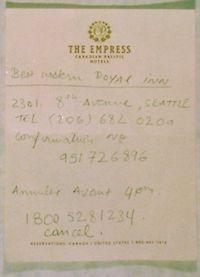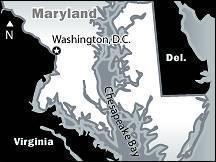 |
 |
|
|||||||
The Warning
His unnerving day at the office had begun with news that Khalil Deek, a computer engineer and al-Qaida operative, had been arrested on suspicion of plotting to kill American tourists in the Holy Land. It had ended with news that a mysterious Arabic man had been arrested crossing the border into Washington state with a trunk full of bomb components.
Sheehan sat down heavily at his kitchen table. He picked up a secure telephone. With an Arabic translator on the line, he called Wakil Ahmed Muttawakil, foreign minister of the Taliban, the Islamic fundamentalist group that ruled Afghanistan and protected Osama bin Laden and al-Qaida. These two arrests, combined with earlier arrests and intelligence chatter from overseas, had pushed President Clinton and his National Security Council to the edge. They told Sheehan to warn the Taliban it would be held responsible.
Sheehan started off with a parable: "If you have an arsonist in your basement, and every night he goes out and burns down a neighbor's house, and you know this is going on, then you can't claim you aren't responsible."
"You have a terrorist in your basement," Sheehan said. "He is attacking us. And you are completely responsible." Muttawakil spoke with diplomatic courtesy. We fought and defeated the Soviets together, he said. Afghanistan would do nothing to hurt America. Sheehan brought up Afghanistan's hospitality to bin Laden. America should be patient with Sheik bin Laden, the minister replied. You have no proof that he is behind any of these plots. Let me read to you a message from my president, Sheehan said: "We will hold the Taliban leadership responsible for any attacks against U.S. interests by al-Qaida or any of its affiliated groups. You will be held personally responsible."
Sheehan hung up with the hope, but not the expectation, that the threat would work.
Now Sheehan was even more unnerved. There were only 15 days before the New Year. How many terrorists had sneaked in before we caught Ressam? Where were they hiding? What were they planning? Thousands of FBI agents volunteered or were assigned to the investigation, called "Borderbom." From Seattle to Boston, they questioned hundreds of Muslims, wiretapped hundreds of conversations, put hundreds of people under surveillance. They made early-morning "knock-and-talk" visits, questioning Muslims at their homes, probing for ties to terrorism. They hoped to disrupt any plans. In Seattle, though, one would-be terrorist was proceeding with his mission. Abdelghani Meskini, the thief from New York, had arrived to help Ressam. He didn't know what his mission entailed, other than it involved steah, danger.
Meskini had rented a car and a room at the Loyal Inn, in the shadow of the city's best-known tourist destination, the Space Needle. He was to meet there with the brother driving down from Vancouver, B.C. — the man he knew only as "Reda." For helping Reda with the mission, he expected to get a fake visa that would allow him to travel to Afghanistan for al-Qaida training camp.
Meskini called his old schoolmate, Mokhtar Haouari, in Montreal to complain. Sit tight, Haouari instructed. After another night of waiting, Meskini flew back to New York. Meanwhile, in Montreal, Abdelmajid Dahoumane, who had helped Ressam build the bomb, met with Haouari. Dahoumane carried a newspaper he had yet to read. Haouari greeted him, then unfolded the newspaper. Without a word, he pointed to an article about the arrest in Port Angeles of an Arabic man who possessed a Canadian passport, circuit-board timers and bottles of mysterious powders and liquids. It was their brother Ahmed. Dahoumane was certain he would be next. He dropped the paper and started making plans to flee Canada. Haouari called Meskini in New York and warned him to throw away his cellphone, move to a new apartment — "Leave the place, leave everything!" — and never again call him directly. It was too late. FBI agents had found Meskini's phone number on a business card in Ressam's wallet. They already had a wiretap in place. Meskini was spooked but knew enough to ask Haouari a question about Ressam in code. "Listen, was that woman your cousin?" After a long pause, Haouari replied, "Yes." On Dec. 30, 36 hours before the dawn of the millennium, the FBI arrested Meskini in Brooklyn and interrogated him for half a day. Meskini insisted he didn't know Reda, or Ressam, or whatever his name was. The interrogators didn't believe him. Later, Meskini did give them something they could use. While getting instructions on how to meet Reda in Seattle, Meskini said, he heard Haouari say, "The fire is on, and it is coming." Would there still be a "fire"? If so, where would it be? In Seattle, where Ressam had been headed? The plotters' choice of motel, a few blocks from the Space Needle, was chilling: The city was planning a New Year's Eve spectacular in which some 100,000 people would gather around the landmark. On Dec. 27, Mayor Paul Schell, saying "the FBI can't assure us there is no risk," canceled the event.
It was an unpopular decision. But at this point, no one, certainly not the FBI, knew how dangerous the next few days would be.
|
|
|||||||||||||||||||||||||||||||||||||||||||||||||||||||||||||||||||||||||||||||||||||||||||||||||||||||||
|
The Terrorist Within | Reprints seattletimes.com home |



